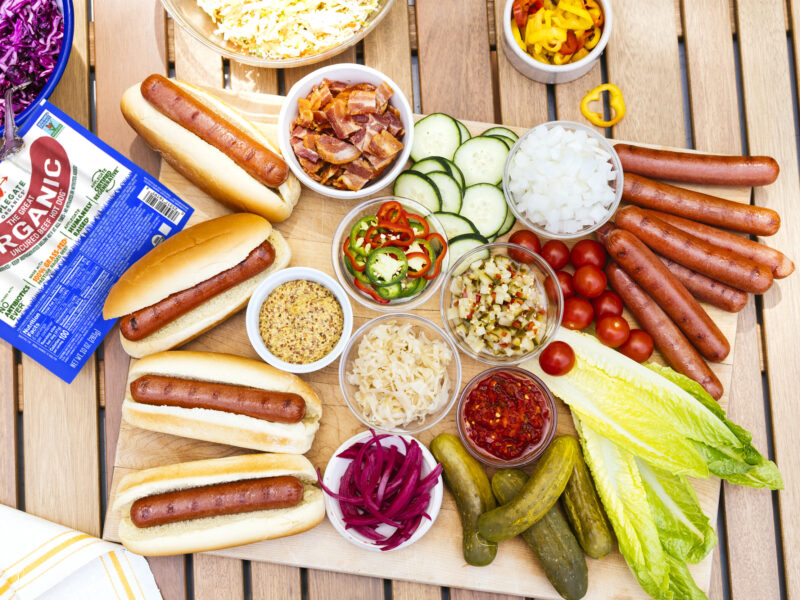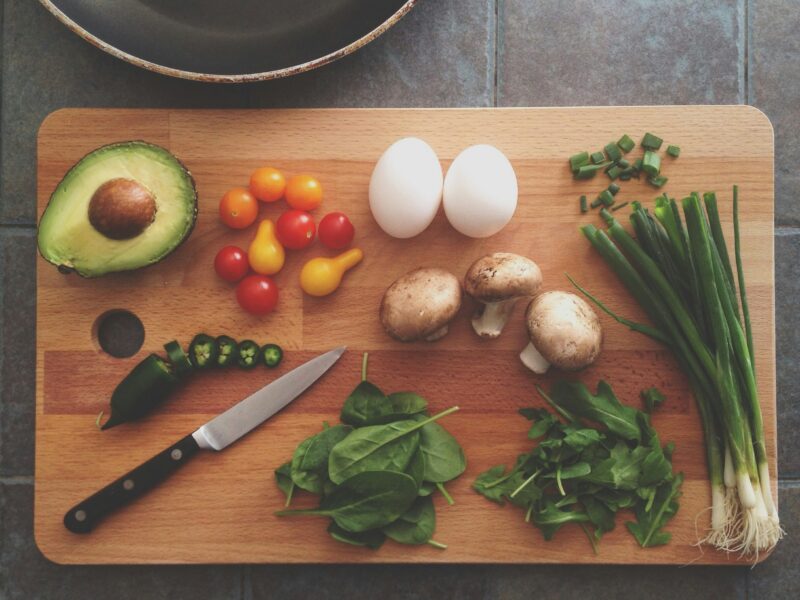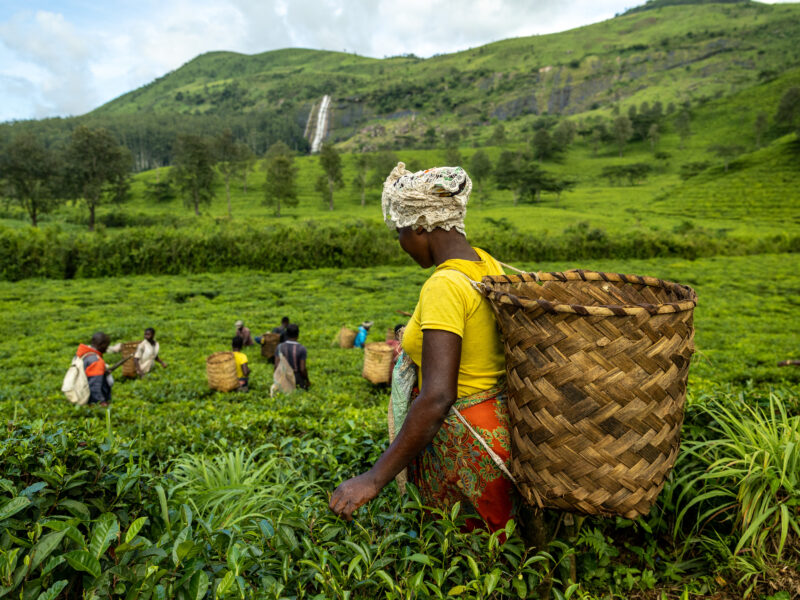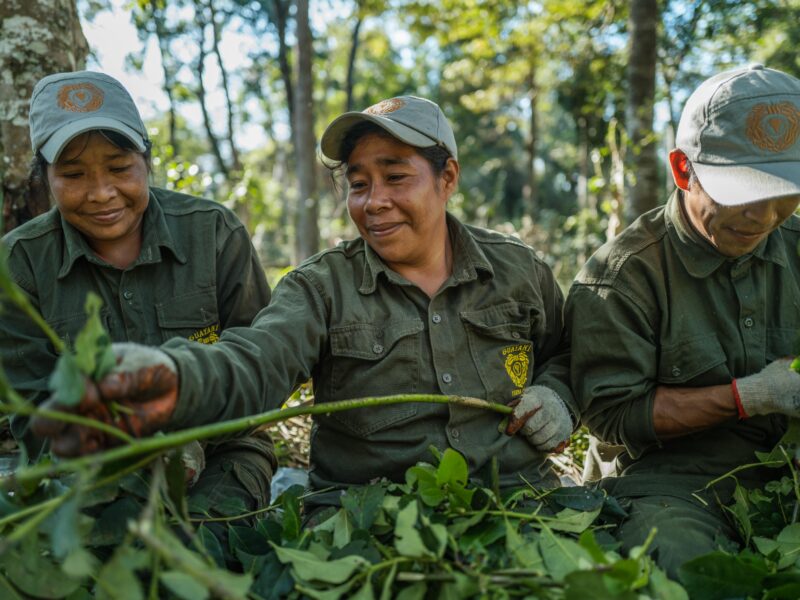Thanksgiving is a time to come together and support the community that nurtures not just your healthy body but also the environment you call home. The best ways to do that are by understanding the differences between organic and industrial agriculture.
The main reason to avoid conventional foods is to skip the more than 700 chemicals used to manufacture these products. Organic production also prohibits the use of antibiotics, so it decreases the development of antibiotic resistance, according to several studies, which found lower rates of antibiotic-resistant bacteria in organic animal products, compared to conventional.
Conventional and organic farming methods have different consequences for the environment and people. Conventional agriculture causes increased greenhouse gas emissions, soil erosion, and water pollution, and it threatens human health.
It makes sense to avoid industrial agriculture from all over the world but especially in your own community since toxic chemicals end up harming our local soil, waterways, air, important pollinators, and ultimately you.
Consider these reasons to support organic this holiday season.
- Local organic decreases fossil fuel costs.
Perhaps the most important reason to buy organic locally is to lower the fossil fuel costs involved in transporting it. Most produce travels about 1,500 miles from farm to plate. This long-distance, large-scale transportation of food consumes large quantities of fossil fuels – about 10 times the amount of energy derived from fossil fuels as the energy we get from the food itself, according to Cuesa.
To eat out-of-season produce, we also pay a high price in the number of carbon emissions produced when our food travels long distances. That’s not healthy for the consumer or the environment.
And it’s not just the continued reliance on fossil fuels and their effects on the climate. There there are also the extra measures involved in bringing something to market that’s not local. For instance, to ship produce and keep it shelf-stable, it must typically be picked before it’s ripe and then gassed to “ripen” it after it’s been transported.
When produce is shipped far from its origin, it also loses some of its nutritional value. Eating locally with the seasons is not only better for you. It’s also the most effective way to save money on organic food and help offset the energy costs of transporting food out of season, along with the food being at its peak nutritionally.
As the cooler months approach, consider these ways of eating organic long into the winter months, when it’s often more expensive and less readily available.
Organic farming has a smaller carbon footprint, conserves and builds soil health, and replenishes natural ecosystems for cleaner water and air – all without leaving behind toxic pesticide residues.
- Local organic food is better for your health.
Conventional processed foods are depleted of valuable nutrients and packed full of chemicals and sugars. And the live enzymes food contains are killed off when it’s cooked or processed.
By contrast, local food is fresh. Higher in nutrient density, fresh food can also improve digestion. In fact, making just one part of a fresh food meal can dramatically improve your health and digestion.
If you’re not a fan of fruit and vegetables, it may be because you haven’t tried a good local organic strawberry or blueberry. You may need to retrain your taste buds to enjoy fresh organic fruits or vegetables.
Organics are good for your health and the environment. Studies link eating organic to a variety of beneficial health effects. A study from Friends of the Earth showed that switching to an organic diet decreased levels of cancer-causing glyphosate – the main ingredient in Bayer-Monsanto’s pesticide Roundup – by 70 percent in participants’ bodies in just one week.
- Supporting local organic creates food security.
During this pandemic, many of us have learned the powerful lesson of having healthy food on hand to sustain ourselves and our loved ones. Supporting local agriculture creates a sustainable food supply and helps with food security for your community. At the end of this health crisis, we want to have learned something from challenges involving food shortages and access issues, rather than continue to repeat the mistake of relying on food that travels long distances to get to your plate.
Knowing how to locate and grow organic will help ensure healthy options for you and the environment, because every dollar spent on local organic food at the farmers market, or directly from an organic farmer, goes back into the local economy and is a powerful vote for our food future.
- Supporting local farms keeps organic farmers in business.
You’ve probably heard how hard farming is or have dabbled in a garden project and lost an entire crop of tomatoes to slugs or killed a house plant. Local, small organic farmers struggle to stay in business and need community support to keep the farm going. The best way to support a local farm is to join community-supported agriculture, or CSA, program.
With this model, a farmer offers a certain number of “shares” to the public. Consumers purchase a share, like a subscription, and receive a box of fresh farm produce and other farm products each week throughout the farming season. Some CSAs also offer plants, flowers, and processed goods.
Many farmers participate in two types of CSA programs to ensure they grow exactly what their community wants, which in turn guarantees a sale at harvest time. The more traditional way is to offer CSA members a box of in-season produce.
A single CSA share can provide you with affordable access to a wide range of organic products, or you can split a share with a friend to make your investment even more budget-friendly. Either way, it’s a great way to help keep small organic farmers in business.
- When you support a local organic farmer, you’re supporting a healthy working environment for your community.
Although we usually think of organic food as a healthier option for us, we miss a bigger picture, in that it’s healthier for those who work on the farms that grow the food. A typical organic farm, even at a smaller scale, requires a lot of labor to be successful. Industrial agriculture has been found to exploit the very farmers and farmworkers we rely on to grow, harvest, and transport our food.
Field workers are often sprayed with pesticides while picking, or they’re forced to enter the field prematurely after spraying. Studies show that this exposure to pesticides may increase the risk of dementia, Alzheimer’s, cancer, and other chronic conditions. Exposure to glyphosate has also been linked to conditions including immune system damage, kidney and liver damage, and Hodgkin’s lymphoma.
In fact, according to the Centers for Disease Control and Prevention, “agriculture ranks among the most hazardous industries.” Studies have found that “416 farmers and farm workers died from a work-related injury in 2017 – a fatality rate of 20.4 deaths per 100,000 workers.”
This list could continue, but we know you have Thanksgiving shopping to do and, we hope, CSA shares to buy from your local organic farmer.
Here at Only Organic, we are thankful for local organic farmers in your neighborhood because they ensure food security and a healthy place for your kids to play and your neighbors to work. We are also grateful for the role organic farmers play in sustaining the local environment. At a time when the focus of health is so strong, we hope you consider these reasons to choose an organic farm-to-table experience this Thanksgiving.
If you think a friend or family member will enjoy this blog, please consider sharing it today!
Happy Thanksgiving!









